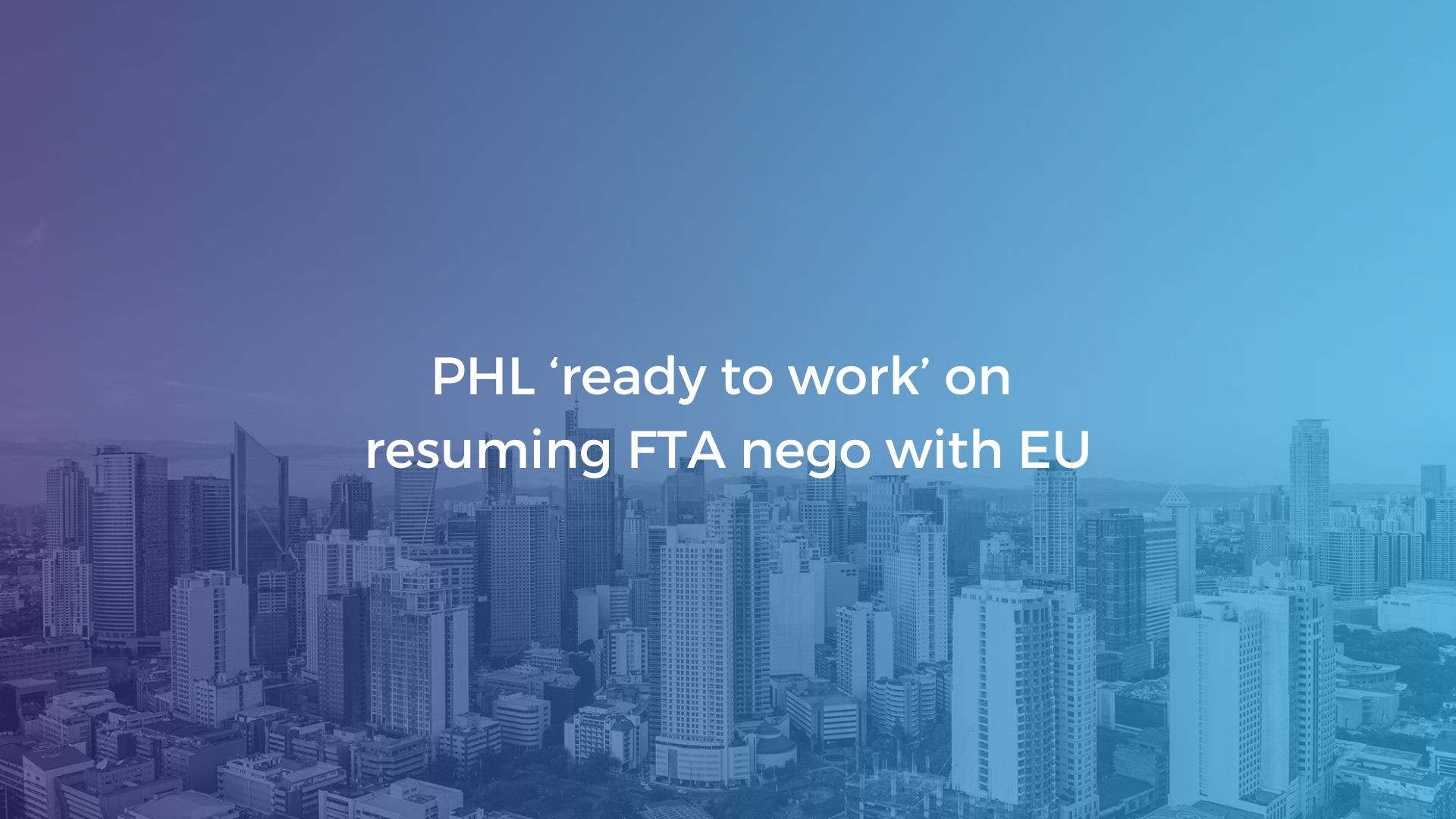
TRADE Secretary Alfredo E. Pascual said the Philippines is “ready to work” toward the resumption of negotiations of the Philippine-European Union (EU) free trade agreement (FTA).
“Given the positive developments in the country and the values and principles we shared, the Philippines remains interested and therefore ready to work toward the resumption of negotiations of the Philippine-EU FTA,” Pascual said on Thursday as he spoke before the EU Parliament Committee on International Trade (INTA).
Citing a 2020 study, Pascual said that 83 percent of German companies want to resume the FTA negotiations, citing the huge potential for EU companies, with the FTA “positively” affecting competitiveness.
The European Union is the Philippines’s 5th largest trading partner in 2020. The country’s “strategic objectives” in engaging the EU in an FTA are: secure additional duty-free market access beyond those covered under the Generalised Scheme of Preferences Plus (GSP+) scheme and on a permanent basis; provide a conducive framework for attracting greater investments from the EU; and be on a par with other Asean member states who are aggressively pursuing FTAs with the EU.
Aside from the need to resume talks on FTA, the Trade chief also stressed that the EU- GSP+“not only strengthens the bilateral economic relations of the EU and the Philippines but it also promotes socioeconomic development in the country.”
Since 2014, the Philippines has enjoyed enhanced trade preferences with the EU under the GSP+. In fact, the Department of Trade and Industry (DTI) said in a statement on Sunday that the Philippines has increased its export to the EU from €5.3 billion in 2014 to €7.77 billion in 2021, of which 26 percent were exported through GSP+ or €2.03 billion.
Further, the Trade department noted that the Philippines recorded its “highest utilization rate” in EU GSP+ at 76 percent. Some of these exports, it noted, include tuna, virgin coconut oil, processed fruits, and spectacle lenses.
With the Philippines enjoying this EU “special incentive arrangement,” Pascual also noted that foreign companies investing in the manufacturing sector in the Philippines also take advantage of the preferential arrangement on top of the country’s extensive and expanding domestic market and a “wide network” of free trade areas.
Addressing some of the issues and concerns raised by the EU, the Trade chief also presented the “significant developments” in the country including the policy direction of the current administration in key areas such as “more focus on prevention, education, and rehabilitation on the campaign against illegal drugs, strong commitment to uphold human rights including press freedom, protection of journalists, and having climate change as a top national agenda.”
The EU has been vocal in their criticism against the Philippines due to its alleged human-rights violations and suppression of freedom. Compliance with international conventions on human rights, labor, environment, and good governance is a “major criteria” for a beneficiary of EU-GSP+.
In order to renew this GSP+ privilege, the Philippines is subject to a regular monitoring of its obligation to the effective implementation of 27 core international conventions on human and labor rights, environmental protection and good governance.
According to DTI, the current GSP, which includes the standard GSP, GSP+, and Everything But Arms (EBA), will expire by the end of 2023.
The EU GSP+ is a unilateral trade arrangement, which offers zero tariffs on 6,274 products or 66 percent of all EU tariff lines.
Source: https://businessmirror.com.ph/2022/10/31/phl-ready-to-work-on-resuming-fta-nego-with-eu/